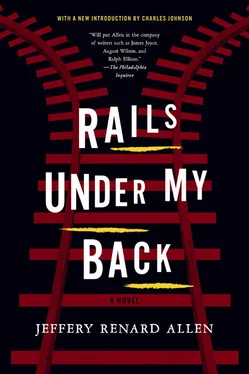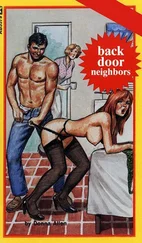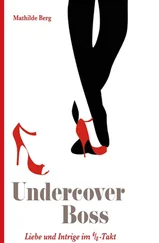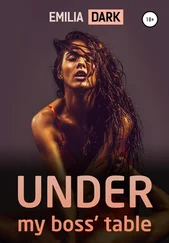Thanks.
You welcome.
Anything else?
Well. He paused, hesitant perhaps. I don’t want nobody but you.
Really?
I don’t ever want nobody but you. He was still, quiet, waiting, a ticket conductor.
From then on, Lucifer met her in the courtyard each morning. Miss Sheila, thought you might need me to carry yo bags. She let him carry the bags to the El. Then she rode the train and took two buses to the Shipcos’ house in Deerfield, far beyond the sprawling arms of Northern Central. After work, she returned and found Lucifer’s waiting eyes on the platform, unmoved, heavy as stone. So it would be. Morning and night, Lucifer stood heavy on the platform, the wood boards swaying beneath him. I don’t want nobody but you.
He rarely revealed emotion, whether happy or sad. He kisses the flesh around her slip straps. He had put time into constructing this face. Spent his life building the hard outer hull, only for her to be drawn into the soft inner life. His tongue works two places at once. He invited her inside. His tongue wiggles between the halves of her breasts. Walk around. Explore on any terms you want. I don’t ever want nobody but you.
Sheila heard, Here, these for you. Two black pearls heated her open hand. Light flashed against the black pearls and the whole world rearranged, a black flood.
With his reliable wings, Lucifer launched full flight into the dark future. She followed.
The first time he came inside her, he jerked twice, and she felt him plop out two seeds of sperm, two black seeds that bided their time. That was Lucifer, still, quiet, waiting.
BIRDS SHATTERED THE GLASSY TRANSPARENCY of the morning. Soared, suspended in air, light pulsing in their wings. Waves of air heated Sheila’s face. The Oriental woman’s eyes rushed toward her, two black circles coal-burning, flicking and fading. With something sharp at heart, she looked around the bend, silver rails curving and disappearing behind a building corner. The train appeared, gliding slowly and silently several hundred yards down the track. These slow Els, slower than the subway, even during rush hour. Sheila, Hatch said, these trains so slow. How come they jus don’t fly? She always took the subway home through the rapid shortening evening. El in the morning, subway in the evening. Each day: half and half. She didn’t like the subway, trains smashing through the darkness, darkness black as the space inside a hoodlum’s hood, so she took the Dan Ryan or the Englewood El to work. But they an eyesore. What you see outside the window. Dull glass in vacant lots, trails of bold grafitti, cementless chimneys, the bowed legs of collapsing porches, burned-out buildings like moth-eaten suits, rusting cars like rotting apple cores, and garbage stacked high.
Somewhere down in the street hammers and saws were busy. The sun was up, all the way clear of the distant lake behind Red Hook and Stonewall. Metal. Everything is metal. The lake enclosed the projects in a bubble, like a toy paperweight. Sheila expected shaken plastic snow to fall. In the far distance a freight train curved into view like a black snake. She counted fourteen cars. The long train like a chain linking the two projects.
Perhaps these trains would stop at Union Station, where Lucifer had gone to meet John this morning. Ain’t heard a word from John in a month, then he up and call and Lucifer rush off to the station, a dog returning his master’s stick. And miss a day of work, too. But she could forgive Lucifer. Brothers are brothers. Forgive him. I’ll jus let him think I’m mad. Might earn me something.
Sides, John ain’t my problem. I don’t sleep wit him. Gracie do.
Gracie was like the ancient women back in the old days at Mount Zion, bitter and alone, crying about men long gone when their own wrinkled flesh had caused their suffering. When their own blindness had shoved their heart into the dark outdoors. They take their pain out on you. Snap bitter words with the least justification.
Gracie hadn’t been in the city a quick minute before she bring Jack home (T Street) to meet Sheila and Beulah. Sheila took one look at Jack. Compassion wilted. She wanted to beat him to death with his hammer-heavy wine bottle. His beard blackened his yellow skin. Sheila tried to touch his outstretched hand but couldn’t. Beulah gave it the lightest squeeze. His red eyes wouldn’t look Beulah in the face. Later, Beulah told Sheila in private that back home she had dated Jack while Koot dated him. My own sister. I lived in one town and Koot another. By accident we found out.
Sheila told Gracie.
Mind yo own business, Gracie said. He mine.
Didn’t really surprise Sheila. Gracie liked to graze in other people’s meadows. That’s why she had to leave Memphis.
Don’t you know that’s the easiest way to get killed? Lula Mae said.
Lula Mae, Beulah said, let me talk to her.
Why don’t you talk to yoself, Gracie said.
Beulah loaded up thirteen black steamer trunks, and John, Lucifer, and Dallas heavy-hauled them down the two flights of stairs, loading two trunks at a time into John’s red Eldorado, one in the red open trunk mouth (trunk for trunk), and the other canoe-fashion on the roof. Seven trips to Union Station, and another seven trips to carry Beulah’s twenty-seven boxes (how could this small apartment have held so much? where had she hidden it all?), the Eldorado stuffed so full that only John could squeeze inside it, the stacked boxes causing the red roof to sag above his head, the car to creak along. (Christ, Beulah. You gon wreck my ride.) Left a free space in the apartment on Kenwood (Woodlawn)— Cookie’s expanding wheelchair had forced yall out of the T Street apartment, elastic wood stretching as age pulled Cookie long and slack —which John and Lucifer filled, and the four of them, the two sisters and the two brothers, transforming that closet apartment into nuptial chambers, the apartment they shared for the single year before John and Lucifer went off to war, and that they shared for seven more years after John and Lucifer returned. Gracie and John would spend time in the red Eldorado, while Lucifer would touch Sheila behind a hanging white sheet. He always touched her with cool fingers (maybe he had soaked them in ice water) that went hot.
Dallas followed John everywhere like a compass. The two would sprawl over the living-room couch laughing about some private joke. Dallas followed Sheila with angry knowing eyes.
Dallas lay like a pinned butterfly beneath John. John leaned forward, pushing the stakes of his knees further into Dallas’s shoulders. Then John hit Dallas, hit him and kept hitting him, quick straight stiff punches that did not miss.
If you gon get beat up, Dave said, you might as well fight.
Lucifer, you said, ain’t you gon do something? You gon let John kill him?
Lucifer did not move. Waited.
You (and Gracie and Lucifer and John) had witnessed John’s transformation from boy to man, the boy-man whose face expressed every feeling quickly and vividly. The man was something to see. Lucifer, John, and Dallas had shared a basement apartment on T Street. Three steps down, then a hall leading to gray cement walls that breathed Dallas’s smell, the stink of old drink. 40 Acres. Cheap wine. Your nose watered the minute you entered. Once a week, in those months before you and Lucifer married, you mopped and wiped down the walls with ammonia. But the stink remained, as if the walls had been painted with vomit.
Even the lame, the deaf, and the blind knew that Dallas and John would hit every port of call (white port, cheap wine) on Church Street, from Seventy-third to Sixty-third and back again, in a matter of hours. Sing those foul corner songs that demanded foul corner faces, twisted mouths, broken curbs. Drink made dangerous words slip out of Dallas’s mouth. When he got drunk, his eyes would get wide and black, two open shoe-polish cans, and he would try to rumble. John, Dave said, you better tell this nigga something before I shoot him. And what could John do? Drunk-stumble into somebody’s door, so hard that the door jumped in its frame.
Читать дальше












